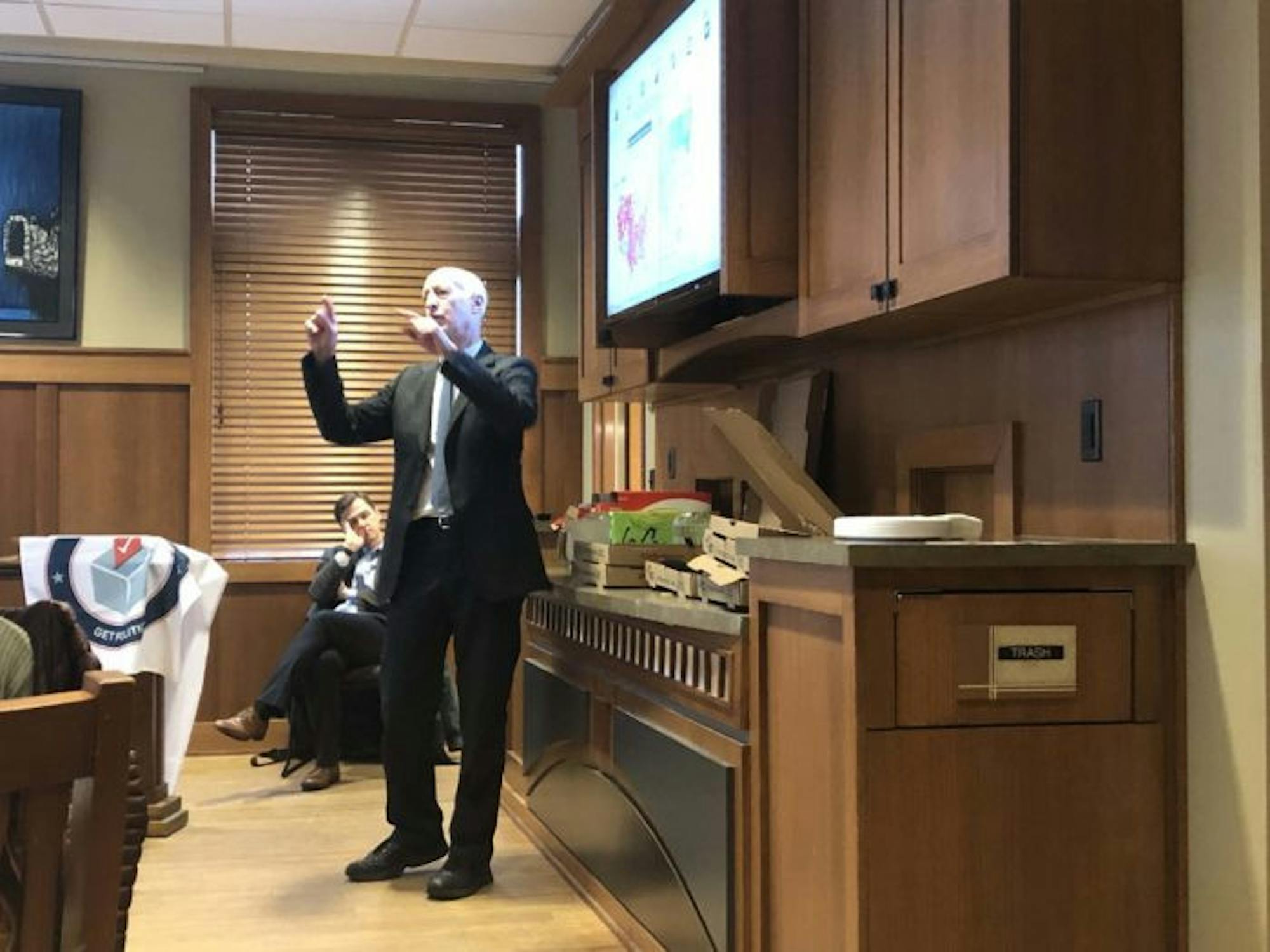ND Votes hosted a discussion on Wednesday which addressed an issue at the forefront of modern American politics — demographics and how one’s place of birth can influence voting habits. The event, held in the Geddes Hall Coffee House, was part of an ongoing monthly series called “Pizza, Pop and Politics,” sponsored by the Center for Social Concerns and designed to increase discourse among students on topics related to politics.
This month’s discussion, titled “The Politics of Place,” featured presentations by Josh Kaplan, professor and director of undergraduate studies for the political science department, and David Campbell, professor and chairperson for the Department of Political Science.
Kaplan said he first became interested in the politics of place while in graduate school.
“I took a lot of history courses, and one of my teachers kept referring to a political scientist named V.O. Key,” Kaplan said. “I read Key’s work, and he wrote a very influential book on southern politics. And about 10 years ago I got the idea for a course on politics in the south. ... [I realized the course was actually] about the demographics in politics.”
Kaplan said demographic trend analysis has only become a standard way of understanding politics in the past decade.
“It used to be something that political scientists, that campaigns talked about it, but now it’s become just one of the things that everybody talks about,” Kaplan said. “Hillary Clinton’s problems with young voters, Bernie Sanders’ problems with minority voters, Donald Trump’s affinity with uneducated voters … all these categories that we now use. So, I see this event as a way to look at the future of American politics by looking at what we can learn from demographics, and how we can think about the influence of demographic change on political change.”
The presentations centered around two major demographic divides in American voting habits—north versus south, and urban versus rural.
Professor Campbell opened the discussion with a question concerning the title of the event itself — why was it “Pizza, Pop and Politics” rather than “Pizza, Soda and Politics?”
“Some of you grew up calling it ‘pop,’” he said, “but why?”
Campbell then transitioned to a discussion of cultural differences across different regions of the United States, particularly the urban-rural split, and its implications for American politics.
Campbell projected slides showing how the divide between urban and rural voting patterns in the United States was wider in 2016 than it was in 2012, though he said the phenomenon was present in both elections.
“This is not a brand-new distinction,” Campbell said. “But it’s one that we’re talking about a little more than we had been.”
Professor Kaplan followed with a discussion of northern voting habits versus southern, and their implications for the 2020 election. Informed by post-Civil War history, Kaplan said there is an important distinction between the “deep South” and the “peripheral South” in their levels of racial integration and urbanization at the time, and the lasting effects those differences had on political participation in the region.

During the question-and-answer segment of the talk, one student asked if there was any truth to the statement that southern suburbs were starting to vote according to northern patterns, while northern towns were beginning to follow southern voting habits.
Kaplan said, “It’s a combination of demographic patterns; for example, people from the north moving to Arlington, Va. who don’t vote like southerners.”
Of the phenomenon of northern towns voting like the South, Campbell said “to be rural is now associated with a particular brand of conservatism, almost a psychic bond with what you’d find in the South.”
When asked what was most crucial for students to understand about the politics of place, Kaplan said understanding context is necessary to understanding trends.
“The importance of putting a particular election result in context,” he said. “We tend to look at elections as a snapshot — who won, what happened? But to understand a particular election it helps to see it in the context of a tendency over time. Politics is always changing and we’re always trying to catch up, [but] to understand the direction of change, you have to look at trends over time.”













